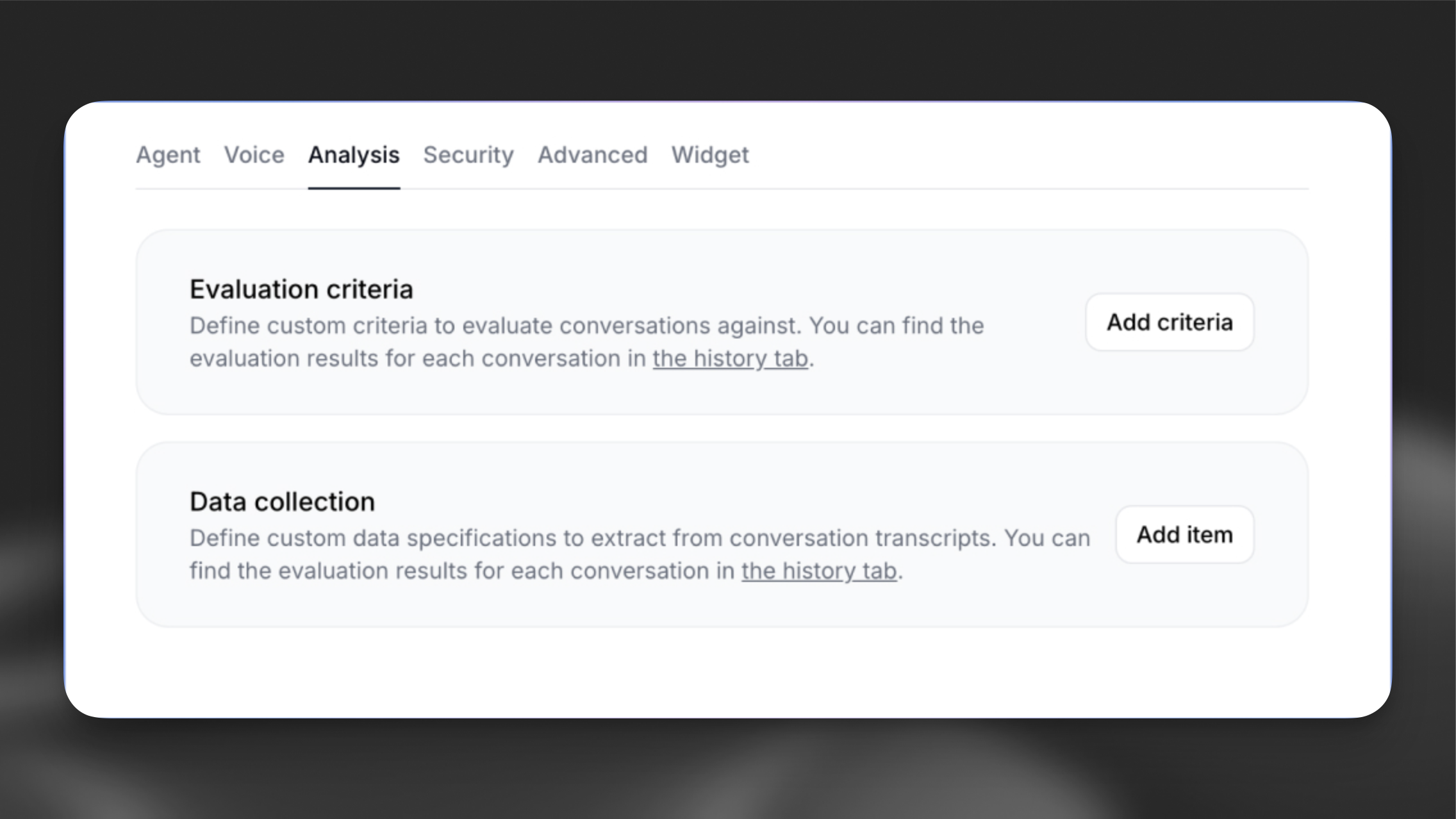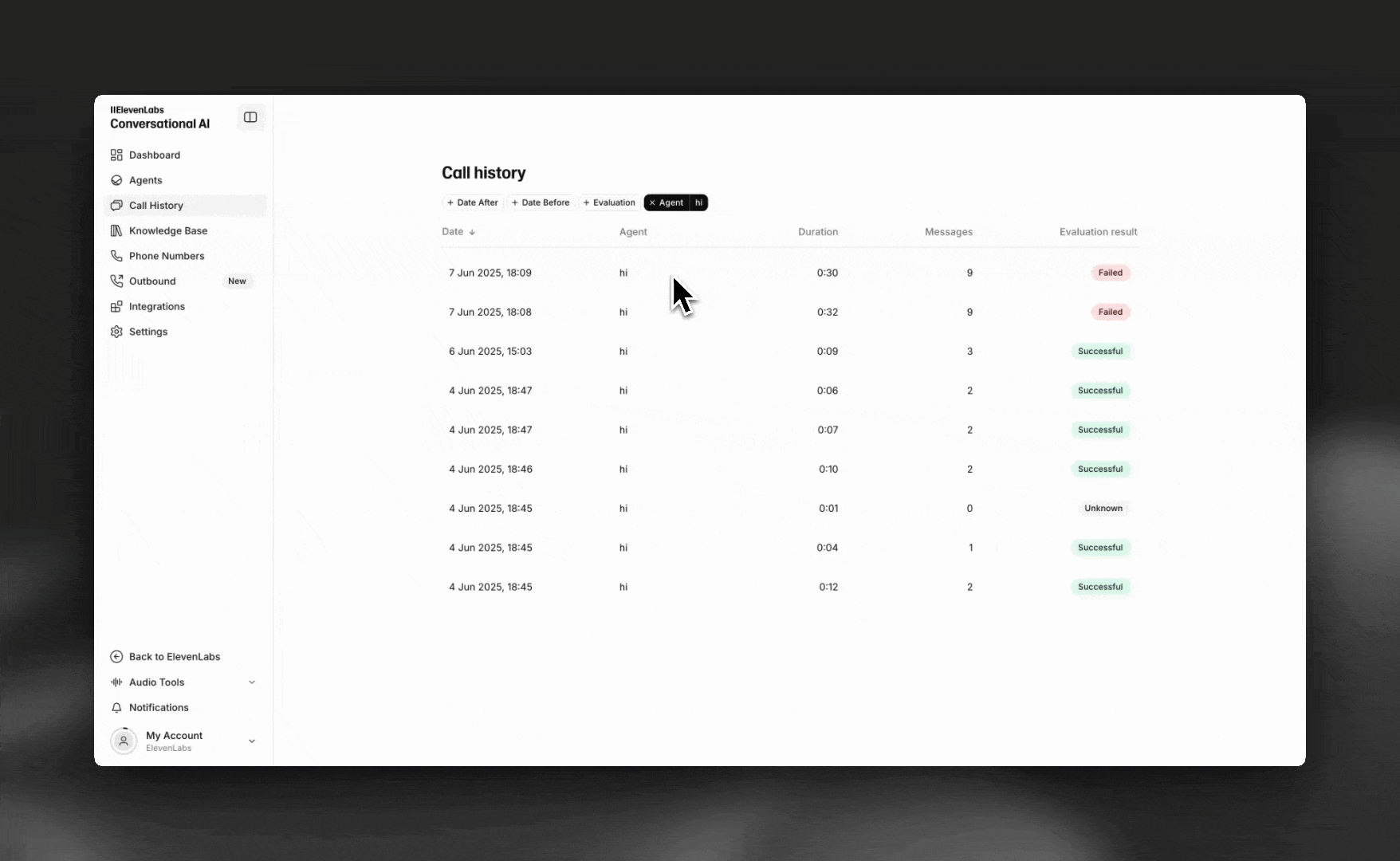Success Evaluation
Success evaluation allows you to define custom goals and success metrics for your conversations. Each criterion is evaluated against the conversation transcript and returns a result of success, failure, or unknown, along with a detailed rationale.
Overview
Success evaluation uses LLM-powered analysis to assess conversation quality against your specific business objectives. This enables systematic performance measurement and quality assurance across all customer interactions.
How It Works
Each evaluation criterion analyzes the conversation transcript using a custom prompt and returns:
- Result:
success,failure, orunknown - Rationale: Detailed explanation of why the result was chosen
Types of Evaluation Criteria
Goal Prompt Criteria
Goal prompt criteria pass the conversation transcript along with a custom prompt to an LLM to verify if a specific goal was met. This is the most flexible type of evaluation and can be used for complex business logic.
Examples:
- Customer satisfaction assessment
- Issue resolution verification
- Compliance checking
- Custom business rule validation
Configuration
Access agent settings
Navigate to your agent’s dashboard and select the Analysis tab to configure evaluation criteria.

Best Practices
Writing effective evaluation prompts
- Be specific about what constitutes success vs. failure
- Include edge cases and examples in your prompt
- Use clear, measurable criteria when possible
- Test your prompts with various conversation scenarios
Common evaluation criteria
- Customer satisfaction: “Mark as successful if the customer expresses satisfaction or their issue was resolved” - Goal completion: “Mark as successful if the customer completed the requested action (booking, purchase, etc.)” - Compliance: “Mark as successful if the agent followed all required compliance procedures” - Issue resolution: “Mark as successful if the customer’s technical issue was resolved during the call”
Handling ambiguous results
The unknown result is returned when the LLM cannot determine success or failure from the transcript. This often happens with:
- Incomplete conversations
- Ambiguous customer responses
- Missing information in the transcript
Monitor unknown results to identify areas where your criteria prompts may need refinement.
Use Cases
Measure issue resolution rates, customer satisfaction, and support quality metrics to improve service delivery.
Track goal achievement, objection handling, and conversion rates across sales conversations.
Ensure agents follow required procedures and capture necessary consent or disclosure confirmations.
Identify coaching opportunities and measure improvement in agent performance over time.
Troubleshooting
Evaluation criteria returning unexpected results
- Review your prompt for clarity and specificity
- Test with sample conversations to validate logic
- Consider edge cases in your evaluation criteria
- Check if the transcript contains sufficient information for evaluation
High frequency of 'unknown' results
- Ensure your prompts are specific about what information to look for - Consider if conversations contain enough context for evaluation - Review transcript quality and completeness - Adjust criteria to handle common edge cases
Performance considerations
- Each evaluation criterion adds processing time to conversation analysis
- Complex prompts may take longer to evaluate
- Consider the trade-off between comprehensive analysis and response time
- Monitor your usage to optimize for your specific needs
Success evaluation results are available through Post-call Webhooks for integration with external systems and analytics platforms.

